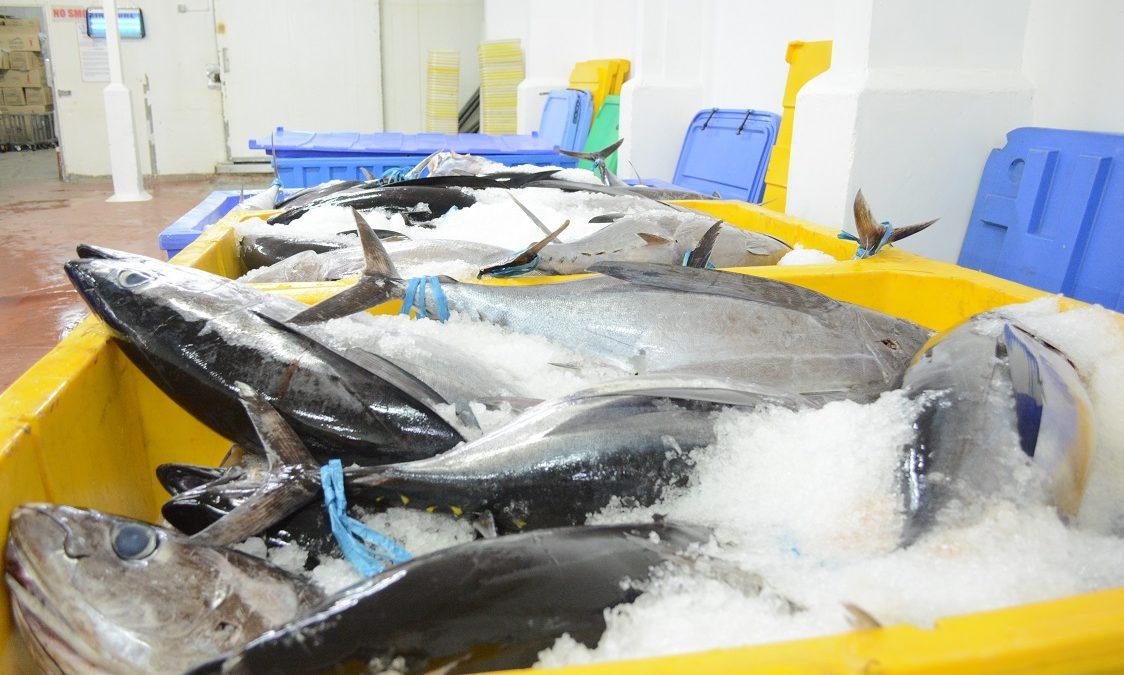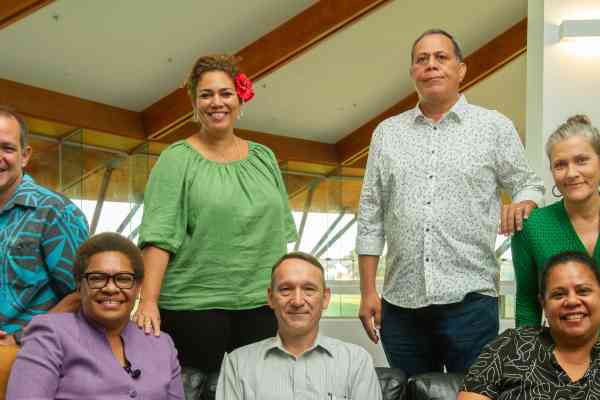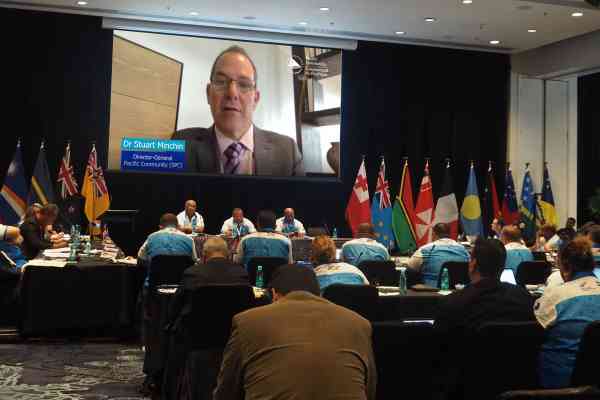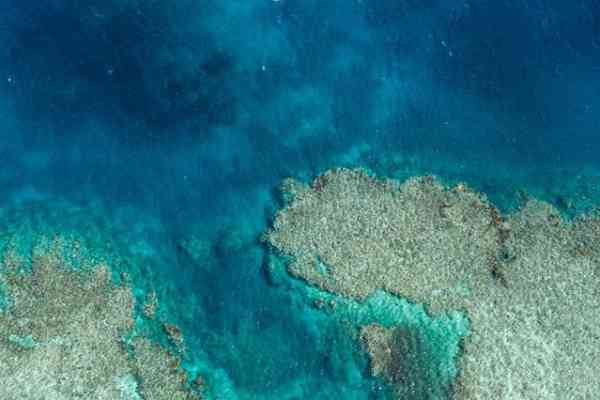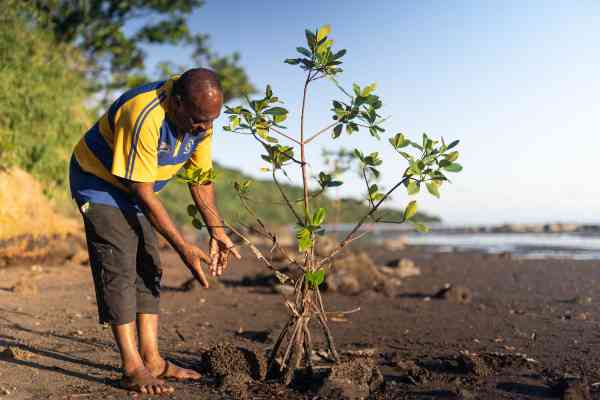The fish that thrive in our waters are of great importance to Pacific Island countries. Shared stewardship of the Pacific Ocean and maintaining regional solidarity as one “Blue Continent” will ensure this resource continues to make a significant contribution to the sustainable development of our people.
For decades we have been successful in managing our fisheries and have surpassed other regions of the world in terms of sustainable practice. Regional cooperation on management of our tuna resources by Forum Fisheries Agency (FFA) members, supported by fisheries science from the Oceanic Fisheries Programme of the Pacific Community (SPC), has ensured that our collective efforts in managing the four main tuna species – skipjack, bigeye, albacore, yellowfin – are paying off, with all currently being harvested within sustainable levels. Effective sub-regional fisheries management arrangements, such as those adopted by the Parties to the Nauru Agreement (PNA), have been integral to the outcomes achieved.
Fish from offshore and coastal waters can be found on our dinner tables more often than not and is essential for the food security of Pacific islanders. Estimates suggest that annual consumption can be as high as 146kg per person in some Forum countries.
Our fish also contribute significantly to the diets of people in other parts of the world, with the Western and Central Pacific Ocean accounting for almost 60 per cent of the global tuna catch, around two-thirds of which is taken in the waters of Forum member countries. In 2016 alone, tuna caught in FFFA members’ waters totalled some 1.5 million metric tonnes worth $USD 2.5 billion.
Increased returns from tuna fisheries
The region has made huge strides in the last decade to reap a greater proportion of the economic benefit from the tuna caught in its waters. The PNA Vessel Day Scheme, in particular, has resulted in a fivefold increase in economic returns to PNA member countries for access to the purse seine fishery in their waters – a remarkable success story that highlights the benefits of zone based management arrangements that recognise the ownership rights of Pacific Island countries to the fishery within our EEZs.
While the FFA reports substantial growth against a number of economic indicators (link), all Pacific stakeholders acknowledge that there is more that could be achieved. Two-thirds of the catch taken in our waters is harvested by foreign fishing boats and nearly 90% is taken out of the region for processing. In 2015, Pacific Islands Forum leaders responded to these figures by endorsing the Future of Fisheries Roadmap that was put forward by the region’s Fisheries Ministers. In doing so, Leaders called for an expedited process to increase the sustainable economic returns from the region’s tuna fisheries in just five years.
A taskforce comprising the Pacific Islands Forum Secretariat, Pacific Islands Forum Fisheries Agency (FFA), the Parties to the Nauru Agreement Office (PNAO) and the Pacific Community (SPC) has been focused since then on four key areas of work.
Longline fishery reform
Almost all tuna in the region are caught in one of two ways. Most of the fish being canned for sale are caught by purse seine fishing boats targeting skipjack tuna. In contrast, longline fishing vessels catch bigeye and yellowfin tuna destined for high value sashimi markets. Despite the positive overall economic growth from fisheries, very little of the overall returns to Pacific Island countries come from the longline sector, and so the first component of the Taskforce’s work has been to look at reforming the management of the longline fisheries.
Two systems are currently in place to manage the region’s longline fisheries: the Parties to the Nauru Agreement’s long-line vessel day scheme (LLVDS), which is focussed on the tropical longline fishery aimed primarily at bigeye and yellowfin, and the catch-based Tokelau Arrangement, which is focussed on the more southern longline fishery mainly targeting albacore. Within these systems Pacific islands countries negotiate the prices that will be charged to longline boats that wish to fish in their waters. Pacific Island countries, through FFA and PNA, have agreed common management approaches, including minimum terms and conditions for the licensing of foreign longline fishing vessels to ensure a more uniform and unified playing field.
Extracting greater economic returns from the longline fishery poses greater challenges, however, as much of the fishery takes place in the high seas where there is less regulation and less control of distant water fishing fleets. Efforts by Pacific Forum countries to manage the fishery are more easily undermined by fishing nations who can play countries off against each other before retreating to the high seas fishing grounds.
Further development of common approaches must be pursued, including learning lessons from the success of PNA in the management of the purse seine fishery. Ministers have called for a strategic regional approach, including the need for high level engagement with fishing nations on options to ensure the long term biological and economic sustainability of these fisheries, in recognition of their central importance to the development of Pacific Island countries.
Employment and working conditions
The catch share taken by domestic and locally based fleets has grown steadily in recent years and in 2016 reached 33%, as we continue to develop domestic industries. The tuna industry currently provides nearly 25,000 jobs across the region, with the largest number employed in tuna processing in Papua New Guinea.
Ensuring that Pacific islanders receive a fair wage and are able to operate in a safe working environment, particularly as crew on fishing vessels, has been the second area of work. Again, much can be achieved here, including to address human rights abuses at sea, by Pacific Island countries working collectively to introduce and enforce industry wide minimum terms and conditions for all operators.
Trade and export
Addressing opportunities and restrictions presented by intra-regional and international trade regulations and policies is a third component of the work being undertaken. An increase in tuna processing within the region will lead to greater income for Pacific countries. Trade policies and regulations that will promote the establishment of regional processing hubs in some Forum countries and support localized industry growth in others is an approach being looked at. A difficulty here is the settlement required between Forum members about where to establish the hubs. This illustrates one of the primary challenges inherent in regionalism. Solidarity will provide greater benefit, but to gain acceptance the concept will need to deliver benefits to all.
Such programs are immediately attractive, but contain inherent challenges to implement, many of which (such as labour mobility) go beyond the remit of fisheries departments. Pacific countries need to continue to work together, in a whole-of-government approach, with support from regional organisations, to overcome these challenges.
Collective advocacy in the international trade arena is also critical. Our countries are increasingly concerned about the significant challenges on the sustainability of fisheries resources due to the implications of harmful subsidies which fuel illegal, unreported and unregulated fishing, and fishing of overfished stock by distant water fishing nations. Fisheries subsidies negotiations are ongoing at the World Trade Organisation and we must continue to reiterate with one voice the importance of the fisheries sector to our economies and come to agreement on comprehensive and effective new disciplines that prohibit those subsidies that contribute to illegal, unreported and unregulated fishing and/or fishing on overfished stocks.
Value chain participation
Greater trade opportunities are also possible through value chain participation which is the fourth component of work being undertaken. To date, much of the focus has been around managing and capturing value from the catching sector, with some more recent progress in terms of the processing industry. But there are large amounts of economic rent generated higher up the value chain, including transportation, marketing, branding and the retail sector.
PNA has made some progress in this regard, pioneering Marine Stewardship Council (MSC) certification of the skipjack and yellowfin purse seine fishery and establishing its own Pacifical co-brand on product caught under the certificate. Additional opportunities being investigated include export of MSC certified albacore tuna to high value markets (rather than the traditional use for canning), and developing the reputation of tuna from Pacific Island domestic industries as product of a fishery that is sustainable and maintains high labour standards.
Combatting IUU fishing
No story about the importance of tuna fisheries to the Pacific would be complete without reference to the collaborative efforts that have been put in place to combat Illegal, Unregulated and Unreported fishing (IUU) underpinned by the FFA Regional Vessel Register and satellite vessel monitoring system (VMS), and regional and sub-regional observer programmes. Pacific Island countries have also recently agreed the Niue Treaty Subsidiary Agreement for sharing of information and cross-vesting of enforcement powers across jurisdictions.
A 2016 independent study on quantifying the impact of IUU fishing in the region found that the effect on the Pacific Islands tuna fishery was significantly less than previous global estimates, largely thanks to the compliance and enforcement measures that have been put in place. The study also found that “Pirate” fishing by unlicensed vessels has been minimized with illegal transhipment at sea and misreporting of catch by licensed vessels now being the main sources of IUU. New regional initiatives on traceability and catch documentation, combined with the new aerial surveillance service funded by the Australian Government under the Pacific Maritime Security Programme, will ensure the Pacific region continues to lead the world in efforts to fight IUU.
Realising the true potential of our fisheries
Over the last decade, Pacific countries have seen results from initiatives to increase the sustainable economic returns from our tuna fisheries. The last 3 years have seen growth in terms of value and control of the tuna caught in the region. We are on track to reach the targeted 9000 new jobs in the industry by 2020. Our export value has risen from USD $643 million in 2015 to $775 million in 2016 with the target set for USD $800 million by 2020.
There is no doubt that significant potential still remains within our tuna fisheries. It is important to recognise that the sustainability of our tuna stocks depends upon the success of work we are also engaged in around ocean management and conservation, climate change, regional security and securing our maritime boundaries.
To maintain momentum and realise the true potential of our fisheries will require a whole of region approach. This may be difficult at times but we must continue to work collectively, support one another and keep our focus on the greater good. Regional solidarity, for the improved health and livelihoods for Pacific people must continue to be our priority.
This feature was written by:
Meg Taylor DBE Secretary General, Pacific Islands Forum Secretariat
James Movick, Director General, Forum Fisheries Agency
Dr. Colin Tukuitonga, Director General, Pacific Community (SPC)
Ludwig Kumoru, Chief Executive Officer, Parties to the Nauru Agreement (PNA)
